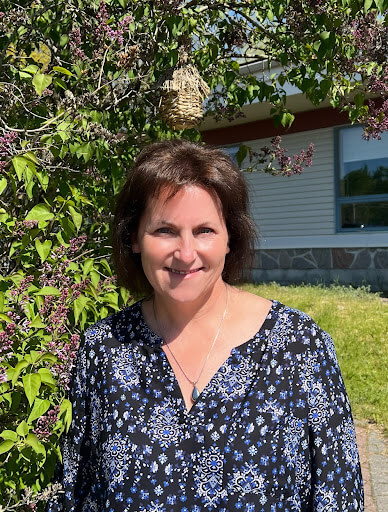
Shelley Watt Proulx, MSW, RSW is the Director, Mental Health and Addiction at Sagamok Anishnawbek. Located on the North Shore of Lake Huron, Sagamok Anishnawbek delivers programs and services to community members as well as to members living outside of the Sagamok community.
The Ontario College of Social Workers and Social Service Workers was pleased to interview Shelley about her role at Sagamok, her professional journey as a social worker and the opportunities and challenges she sees for the future of the social services sector.
Q: What drew you to the field of social work?
Shelley: When I started university and was deciding on my major, a friend mentioned social work and I thought it sounded interesting. Once I was in the social work program, I realized it was a perfect fit for me. While still in school, I started working with youth and recognized the impact I could have — I felt that I connected well with youth and that the field was the right choice for me.
Q: You’ve been working at Sagamok for approximately seven months now. What challenges have you faced as you take on your new role?
Shelley: Regardless of my professional experience in the field of mental health and addictions, as a woman of settler descent, I am firmly committed to putting significant time and effort into building trust with community members. Only through this investment of time, with a focus on consultation and learning from the community, will there be a comfort level with what we are offering in our department. As we work through this process together and learn from each other, I hope the community will trust my team and I to walk with them as they journey towards wellness.
Part of my role is to make sure our staff care for themselves too. Living and working in a small community is not always easy. It can be challenging to maintain personal wellness while simultaneously recognizing the nuances of the community. For example, if there is an overdose death in the community, our staff feel it as workers, but they are often affected on other levels as well — they may feel the death as an auntie, sister-in-law or former schoolmate. We must provide support to our staff as well as our clients.
Q: What are your goals for your role moving forward? What are you most excited about?
Shelley: I’m looking at how to best coordinate care, with other providers which will allow us to help folks in the most effective way possible. We have multiple providers doing similar things in our community and every community member has different needs. For each client, we need to determine if our role is to provide them with direct services, or if it’s more effective to help them by coordinating services through another partner service provider. People come to us at a time when they need help and having too many options can create confusion and may overwhelm clients.
I’m most excited about how much opportunity we have to work with going forward. We continue to bring traditional and cultural methods to our client-centred and trauma-informed approach to care. I believe our work with the local school will provide skill-building and enhanced education for students and their parents/caregivers. I am hopeful for what the school yard will look like 10 years from now. If we continue down the correct path, we can positively impact the next generation by interrupting trauma and providing opportunities to begin the community healing process.
Q: How do you see the field of mental health and addiction changing in the future?
Shelley: I think the next big shift will be considering mental health in the same way as physical health. If I am struggling with depression, it shouldn’t be regarded as different than having unmanaged diabetes. It’s affecting my quality of life, my ability to work and my capacity to be present with my family.
I also hope that we see less judgment around addiction. If you’ve relapsed, we should be welcoming you back and helping you move back into a place of wellness, not judging you for relapsing.
Q: What do you want those who are just entering the social services sector to know?
Shelley: After almost 30 years in the field, I remain hopeful for the future. I am glad to see an increased prevalence put on the roles of social workers and social service workers. I want those who are just starting out to know that a degree in social work or a diploma in social service work can give expose you to a whole range of job prospects. You can work in schools, the justice system, hospitals, communities and group homes, to name just a few options. There is a lot of opportunity to influence change in a positive way by working in social services, and this results in a very rewarding career.

The College thanks Shelley Watt Proulx, MSW, RSW for granting us this interview. In appreciation, the College has made a donation to the Sagamok Anishnawbek Youth Centre. For more information about the Sagamok Anishnawbek, please visit www.sagamokanishnawbek.com.